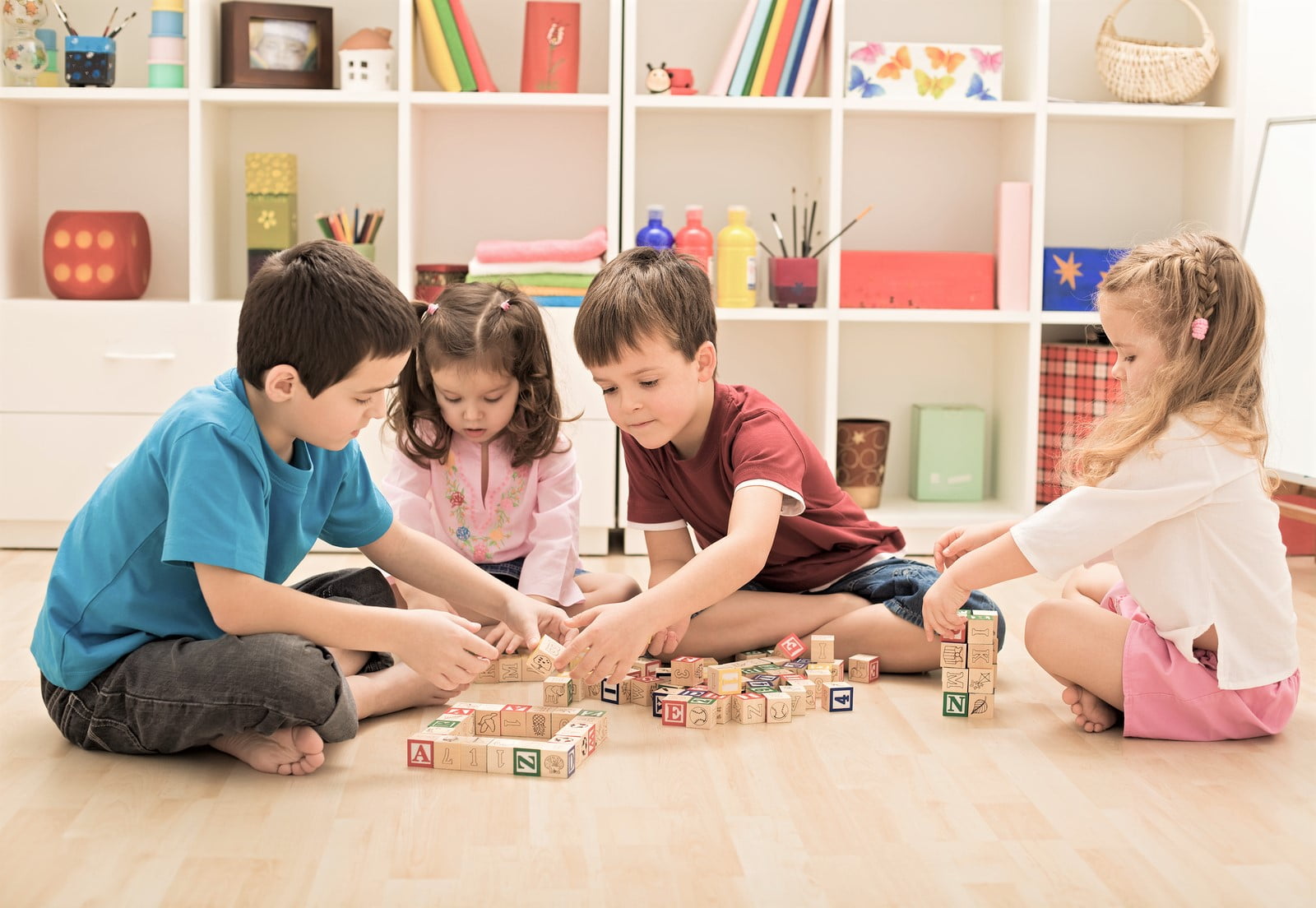Tips for keeping children occupied while working from home


Like many parents, I have had to cancel travel, play dates and school holiday activities thanks to the lockdown that’s currently enforced in greater Sydney. And like many parents, that’s also meant working from home with my children hovering over my shoulder, asking for their next snack or chance to leave the house. It’s an impossible juggle, made worse by wet weather last week keeping us indoors.
According to survey results from the Australian Institute of Family Studies, 67% of Australian parents work from home (up 25% since Australia’s lockdowns began in 2020), but their experiences are far from seamless, with 49% saying they find it difficult to combine work and care responsibilities, and 40% saying they were “always or often actively caring for children while working”.
So how does one manage?
Rachel Tomlinson, registered psychologist and author of Teaching Kids to be Kind, suggests trying to keep your children as close as possible to their usual routines – even packing their lunch boxes – to protect their “sense of consistency and safety”.
The “random nature” of lockdown and the lack of preparation or awareness that often comes with it – coupled with the confusion around Covid-19 itself – makes for an emotional time for children, who “don’t cope well with change at the best of times”. Setting clear expectations, routines and boundaries can also help children adjust around your work schedule.
“Having clear signals or symbols that represent time or situations where parents can’t be interrupted, like a sign on the office door, or headphones on, is really important,” she says. “If we involve them in the planning of the day, or negotiations around how boundaries are set, they are more likely to respect the rules … because they were involved in the process.”
She also advises carving out time to be truly present with your children, looking them in the eye, sitting close and engaging in quality interactions without the distractions of work or phones.
Then, when you do need to work, she suggests choosing tasks for children that offer a “sustained involvement”. Having a “tick box” or activity list can work really well to keep kids occupied long enough for you to tackle your to-do list.
“Set up activities that involve delayed gratification or some future goal, like … planting some herbs, or an art project,” she says. “Balance out their activities and plan something to meet [their] different needs – physical, emotional, social.”
Don’t keep virtual meetings to yourself either, Tomlinson advises. Put your kids to task on online courses, video demonstrations, or even games and quiz sessions with friends and family online.
This was Andrea Christie-David’s exact thought when she extended the services of Leor – the in-home, early childhood education and disability support service she founded in 2018 – to families stuck at home during the lockdowns of 2020.
She knew there was a demand for a “fun and engaging interactive learning program” that could free parents up for an hour each day. She is holding free online playgroups for families at 11am AEST every weekday until 9 July. Families can book into the online playgroups through Leor’s Facebook page, and can expect their children to do things such as yoga, craft, show and tell, and treasure hunts with items in the home that they can then show other children in the group.
“We have been overwhelmed by just how engaged children have been … they have focused on the yoga and completed craft activities with other children online,” she says.
If you’re reading this and wondering about your own child’s ability focus, don’t fret, because resilience educator and mum Fiona Perrella says that boredom can actually be healthy for your children too.
“Every time you find something for them to do, you are teaching them that their entertainment is dependent on other people,” she says. “Lockdown is an opportunity to let your kids develop the ability to entertain themselves.”
Perrella founded Strength Heroes, which creates art and play-based experiences for children, in 2012. She offers activity ideas on Facebook and Instagram, as well as a free downloadable kit of activities on the Strength Heroes website.
Like Tomlinson, she says creating a day plan with your children with blocks of time for different purposes, and sticking to it, can be an effective way to safeguard work time. It puts the onus on them to address their own boredom.
While you work, children can choose activities from a boredom-buster chart or jar, containing tasks they themselves have put together.
Stuck for ideas? Turn to social media, where listicles of ideas by parents abound. Sydney mum Daniela Minns’ list of screen-free activities has reportedly gone viral. While some tasks require parental supervision, others can be tweaked for the working parent by setting them as a challenge.
Perrella also has a pro-social approach to her strategies, like writing cards or drawing pictures for people in local nursing homes, chats with grandparents about their childhood over Facetime, and writing “missing you” cards to friends.
Tomlinson says that parents need to be kind to themselves too – practical about their own output, accepting of fluctuations in their energy levels, and adamant about normalising their feelings and engaging in self-care.
“It’s important to be realistic,” she says. “Most parents don’t have degrees in teaching or child education, [and don’t have] additional hours in the day to cope with extra duties.”
Source: The Guardian




